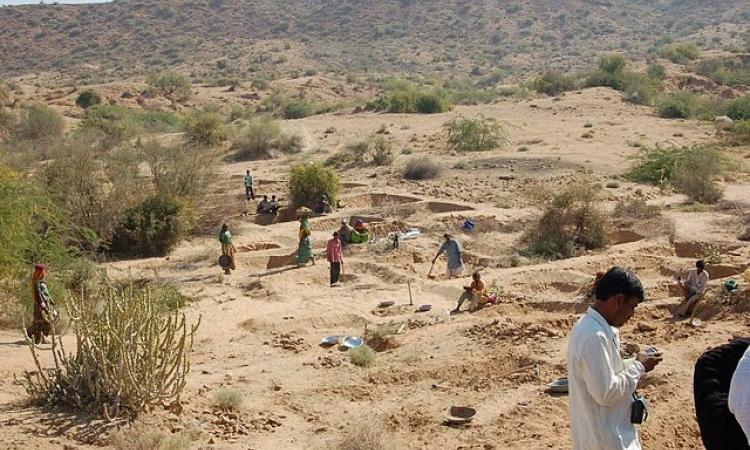
Additional Rs 40,000 crore allocated to MGNREGA
In a bid to provide work to migrants returning from cities to villages, the Finance Ministry has provided an additional Rs 40,000 crore to the Mahatma Gandhi National Rural Employment Guarantee Scheme (MGNREGS) for 2020-21. With this, the scheme allocation for the year 2020-21 reaches to Rs 1.015 trillion, of which Rs 11,500 crore has to be spent on clearing pending dues from the previous year. The extra fund allocation will enable nearly 300 crore person days of work in 2020-21, almost 7.04 percent more than the initial estimate of 280.26 crore person days of work in 2020-21. Along with this, the Centre has also announced Rs 1 lakh crore Agri Infrastructure Fund for farm gate infrastructure for farmers. (Hindustan Times)
Environment ministry panels defer decision on several big projects
Owing to emerging ecological concerns, question on viability and inadequate information, the key expert panels of the environment ministry have deferred decisions on certain projects, including 3,097 MW of Etalin Hydropower Project in Arunachal Pradesh’s Dibang valley and Mumbai Port Trust’s marina projects. Along with these, the other big projects whose green clearance has been deferred are 2,400 MW of Talabira thermal power project in Jharsuguda, Odisha and exploration of uranium in Amrabad Tiger Reserve in Telangana. Deferring of these projects is a major victory of environmentalists who have been opposing them for long, mainly the Etalin project of the Dibang valley that would completely destroy the ecologically fragile region of the northeast. (The Times of India)
Centre issues revised guidelines for idol immersion
With an aim to promote use of eco-friendly materials to make and decorate idols, the Central Pollution Control Board (CPCB) has published a revised version of its 10-year-old guidelines for making idols and their immersion. The guidelines which bans the use of plaster of paris (PoP), thermocol and single-use plastic in idols, cover instructions for idol makers; immersions at water bodies and in the sea; festival organising committees; and the responsibilities of state pollution control boards. The revised guidelines recommended the use of a pyramid of sugarcane sticks for pandals along with natural clay and natural clay mixed with alum for making idols. Also, the guidelines suggest immersion in artificial ponds and between the high tide and low tide line at designated sites at sea. (Outlook India)
No new schemes on the Krishna river: Centre directs Andhra government
The Water Ministry has ordered the Andhra Pradesh government to stop its latest bid to construct a lift irrigation scheme on the Krishna river and upgrade the Pothireddypadu head regulator canal system on the foreshore of Srisailam reservoir. The order has come after the Telangana government opposed AP government's proposal of several new schemes worth over Rs 7,000 crore aimed at drawing an additional quantity of six to eight tmc (thousand million cubic feet) of water per day from Srisailam reservoir on the Krishna river. The Telangana accused the latter for violating the Krishna Water Dispute Tribunal. (Hindustan Times)
Modified DPR of Ujh multipurpose project in J&K has been approved
The Central advisory committee for consideration of techno-economic viability of major and medium irrigation, flood control and multipurpose project proposals have given its approval to the detailed project report (DPR) of Ujh multipurpose project, worth Rs 9,167 crore. The move has been taken keeping in view the strategic importance of the project- for the utilisation and regulation of waters flowing across the border and for potential use of the stored water in an optimal manner in the future. The modified Ujh MPP is located on river Ujh, one of the main tributaries of river Ravi, in Kathua district of Jammu and Kashmir. (The Times of India)
This is a roundup of important policy matters from May 11 - 18, 2020. Also, read news this week.